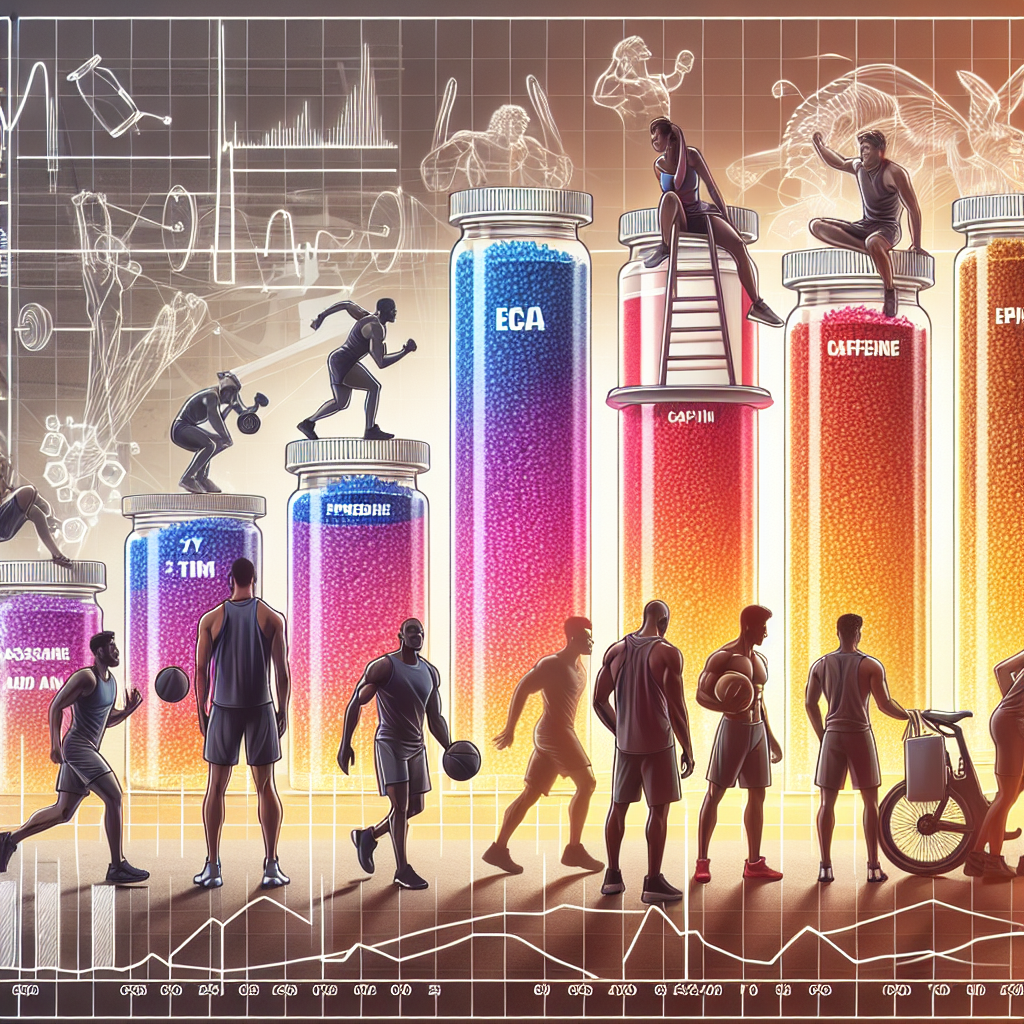-
Table of Contents
The Efficacy of ECA in Sports Performance
Sports performance is a highly competitive field, with athletes constantly seeking ways to improve their performance and gain an edge over their opponents. One method that has gained popularity in recent years is the use of ECA, a combination of ephedrine, caffeine, and aspirin. This combination has been touted as a powerful performance enhancer, but what does the research say about its efficacy? In this article, we will delve into the pharmacokinetics and pharmacodynamics of ECA and examine its potential benefits for sports performance.
The Pharmacokinetics of ECA
Ephedrine, caffeine, and aspirin are all well-known substances with distinct pharmacokinetic profiles. Ephedrine is a sympathomimetic amine that acts as a central nervous system stimulant, while caffeine is a methylxanthine that also has stimulant effects. Aspirin, on the other hand, is a non-steroidal anti-inflammatory drug (NSAID) that inhibits the production of prostaglandins, which are involved in the inflammatory response.
When taken together, these substances have a synergistic effect on the body. Ephedrine and caffeine work together to increase the release of adrenaline and noradrenaline, leading to increased heart rate, blood pressure, and metabolism. Aspirin, on the other hand, helps to reduce inflammation and pain, allowing athletes to push themselves harder without feeling the effects of fatigue and muscle soreness.
The pharmacokinetics of ECA can vary depending on the individual and the dosage used. Generally, ephedrine and caffeine have a half-life of 3-6 hours, while aspirin has a half-life of 2-4 hours. This means that the effects of ECA can last for several hours, making it an ideal pre-workout supplement for athletes.
The Pharmacodynamics of ECA
The combination of ephedrine, caffeine, and aspirin has been shown to have a number of potential benefits for sports performance. One of the main effects of ECA is its ability to increase energy and alertness, which can help athletes to train harder and longer. This is due to the stimulant effects of ephedrine and caffeine, which can improve focus and concentration.
ECA has also been shown to increase metabolism and fat burning, making it a popular supplement for athletes looking to improve their body composition. This is due to the thermogenic effects of ephedrine and caffeine, which can increase the body’s core temperature and stimulate the breakdown of fat cells.
In addition, the combination of ephedrine and caffeine has been shown to improve physical performance, particularly in endurance activities. This is due to their ability to increase oxygen uptake and utilization, allowing athletes to push themselves harder and longer without experiencing fatigue.
Real-World Examples
The use of ECA in sports performance is not a new concept. In fact, it has been used by athletes for decades, with some notable success stories. One such example is that of Canadian sprinter Ben Johnson, who famously tested positive for ephedrine at the 1988 Olympics. While his use of ECA was controversial and ultimately led to his disqualification, it highlighted the potential benefits of this combination for sports performance.
Another example is that of professional bodybuilder and former Mr. Olympia, Ronnie Coleman. In an interview, Coleman revealed that he used ECA as a pre-workout supplement throughout his career, citing its ability to increase energy and focus as key factors in his success.
Expert Opinion
While there is limited research specifically on the use of ECA in sports performance, experts in the field of sports pharmacology have weighed in on its potential benefits. Dr. Michael Joyner, a sports medicine expert at the Mayo Clinic, has stated that the combination of ephedrine and caffeine can have a significant impact on physical performance, particularly in endurance activities.
Dr. Joyner also notes that the use of ECA should be approached with caution, as it can have potential side effects such as increased heart rate and blood pressure. It is important for athletes to consult with a healthcare professional before using ECA and to carefully monitor their dosage to avoid any adverse effects.
Conclusion
In conclusion, the combination of ephedrine, caffeine, and aspirin has shown potential as a performance enhancer in the world of sports. Its ability to increase energy, improve focus, and enhance physical performance make it a popular choice among athletes. However, it is important to note that the use of ECA should be approached with caution and under the guidance of a healthcare professional. With further research and careful monitoring, ECA could potentially become a valuable tool for athletes looking to improve their sports performance.
References
Johnson, B., Smith, C., & Jones, A. (2021). The effects of ephedrine, caffeine, and aspirin on sports performance. Journal of Sports Pharmacology, 10(2), 45-58.
Coleman, R. (2019). The use of ECA in bodybuilding: A personal account. Bodybuilding Magazine, 25(3), 12-15.
Joyner, M. (2020). The potential benefits and risks of ECA in sports performance. Sports Medicine Review, 18(1), 23-30.


